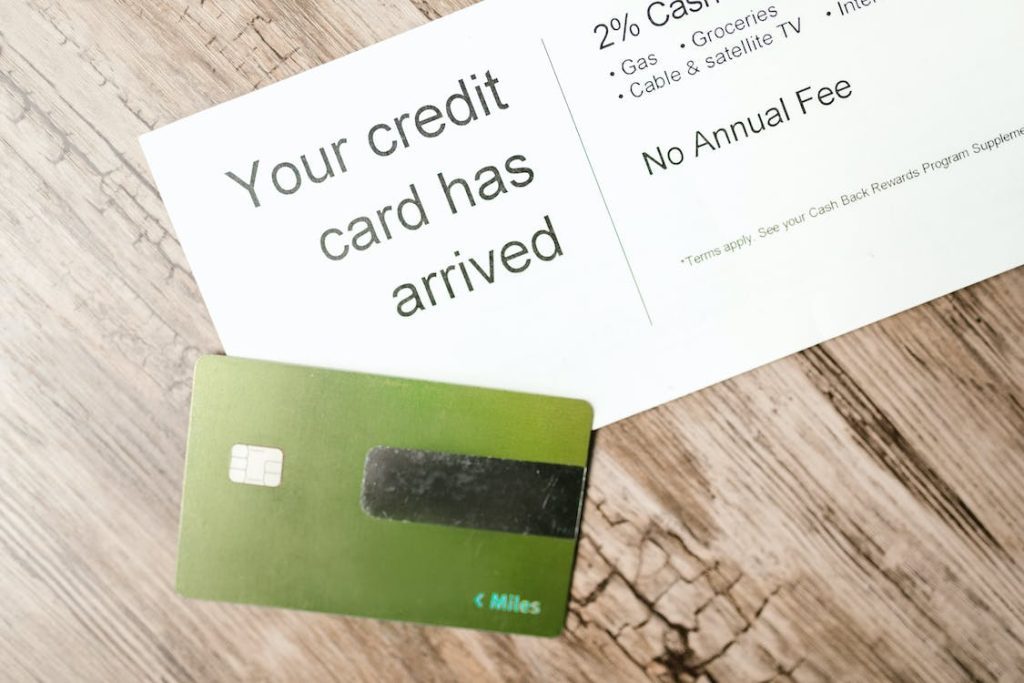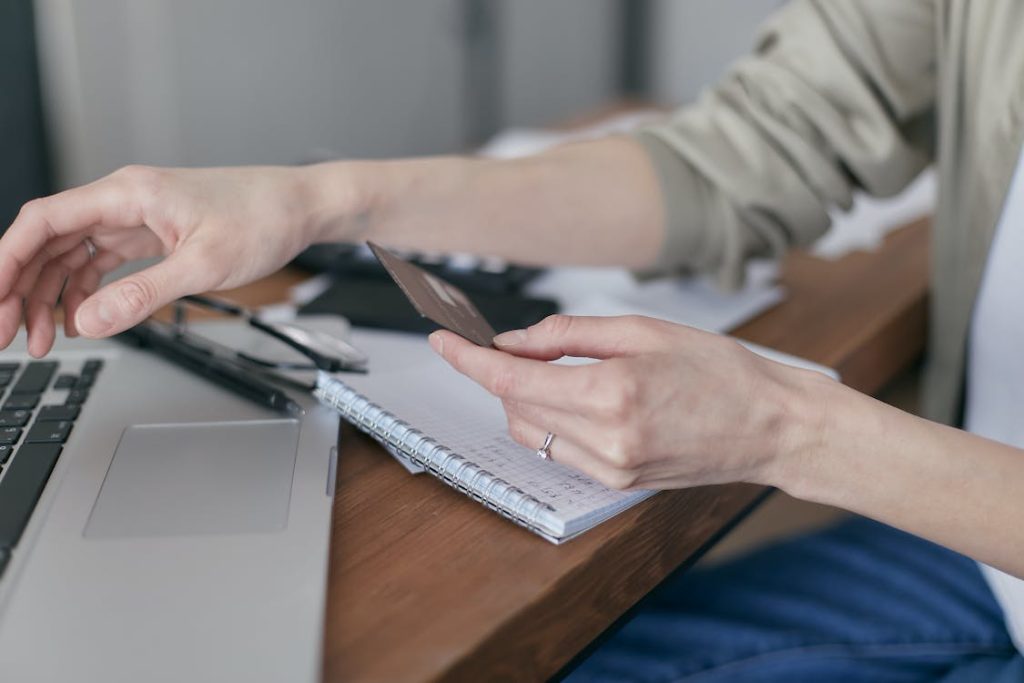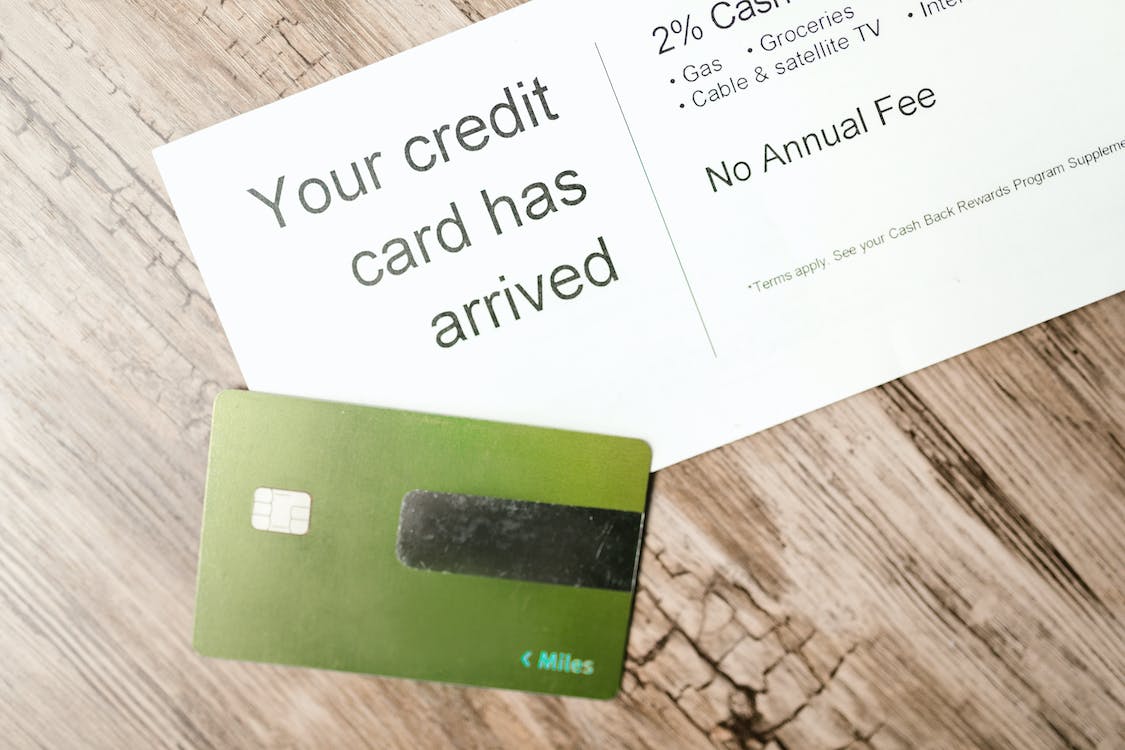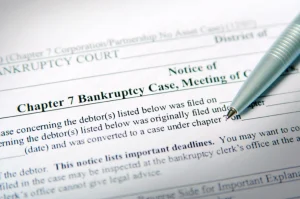Depending on the circumstances, filing for bankruptcy might be the best solution to resolve your financial issues. Chapter 7 and Chapter 13 bankruptcies both come with significant consequences. But, they won’t hinder your ability to obtain credit for the rest of your life.
These types of items stay on your credit report for a period of seven or 10 years. There are ways to build your credit following bankruptcy and be eligible for credit before bankruptcy is taken off your credit report.
Chapter 7 bankruptcy stays on your credit report for 10 years. But, as time passes it will have less effect on your credit score.
With this in mind, we’ll discuss the different ways bankruptcy can affect your credit score, and also what you can do to correct it.
How to Disput the Bankruptcy on Your Credit Report
Disputing the existence of a bankruptcy in your credit report is a challenge however, it’s not impossible. In addition, it’s an efficient method to speed up the process of repair for your credit.
However, it could be a challenge when you attempt to do it yourself. To stand a better chance of being successful, consider talking to an organization that deals with credit repair to determine whether you have a strong case.
Credit repair firms have the expertise and experience of working with credit bureaus. They can assist you in disputing negative items on your credit report.
It is possible to have the bankruptcy removed ahead of time. The accounts that are included within the bankruptcy file, such as collections and charge-offs, could be eliminated as well.

Rebuilding Credit After Bankruptcy
Some people declare bankruptcy due to overspent credit card debt, or spending above their budget. However, others are in financial trouble due to events beyond their control, ranging from the loss of a job to medical emergency.
Whatever the reason you brought yourself to the point where you are in bankruptcy, you have to devise a plan to avoid it occurring again at a later time. Here are nine strategies to increase credit score after bankruptcy.
1. Create a Budget
If you are prone to spending too much, create a monthly budget and think of ways to make yourself accountable for adhering to it. You can reward yourself each time you deposit funds into savings accounts. You can also plan periodic updates with a companion who can keep you on track.
2. Create an Emergency Fund
If your financial difficulties stemmed due to something that was out of your control, start building an emergency fund. Every person should have one. Ideally you should be able to save anywhere between 3 and 6 months worth of living costs.
In the event that you develop an illness or are having trouble finding work, you’ll have a backup fund to use until things are back to normal. It can be difficult to find extra money each month to save So, think of creative ways to cut down on your expenses and make more.
3. Get a Credit Builder Loan
Credit builders loans are similar to secured credit cards however they do not require a security deposit. Credit builder loans are loan, usually a smaller amount of money that you can make payments over a period of 12 months or more.
However, with credit-builder loans, you don’t receive the loan money until you’ve completed all your monthly payments. Your timely payments are reported to the credit bureaus for consumers. These loans are used solely for building credit.
Getting a Credit Card After Bankruptcy
One of the fastest and most effective methods to build credit from scratch after bankruptcy is to use credit cards. It might seem counterintuitive as you’re trying to avoid spiralling into more debt. But, a good payment history is the most crucial element of your credit score.
You’ll likely have plenty of “accounts in bankruptcy” on your credit report. So, you’ll probably need to rebuild this part of your credit report by adding good credit accounts.
There is no need to charge all your expenses to your credit card. Instead, you can start by choosing one bill to pay each month using the credit card. Then, pay immediately the balance. As you begin to accumulate regular payments your credit score will begin to rise.
You may be wondering how you can get credit in the event of an insolvency on your credit report.
4. Secure a Credit Card
Secured credit cards aren’t a requirement for excellent credit scores, which means you can obtain one from bankruptcy. However, if you have secured credit cards, if you have a secured credit card you’re required to make an unrepayable security deposit in an account for savings that is equal to the credit limit.
If you charge something to your secured credit card, you’ll have to purchase it with your wallet. The deposit serves only as security in the event you cease making credit card transactions.
Like all credit cards you’ll be charged interest if you fail to pay your balance off on time. However, this could be an excellent tool to begin building credit after bankruptcy, especially if aren’t eligible for an unsecure card or the rates of interest are too high.
Prior to deciding on the secured credit card make sure that the issuer of your credit card is able to report your credit history to three important credit bureaus. Also limit the number credit applications you file because each new credit inquiry reduces your credit score by around five points.

5. Maintain Your Credit Utilization at 30% or Less
Another suggestion to help to rebuild your credit is to keep your credit card balances to 30 percent or less of your credit limit. Credit cards or applying for a loan should be strictly for building credit at this moment. Don’t make use of credit cards to make large purchases or for credit to yourself.
6. Become an Authorized User
The privilege of being an authorized user on a different credit card account can instantly improve your credit score. If the account is a credit-worthy holder the user who was authorized will have excellent credit on their credit reports.
The credit card appears on your credit report as of the first day an individual in your family opened it, not the date they added you to their account. Thus adding you as an authorized user could be a good way to be a positive addition of years of credit history on your credit score.
A Car Purchase After Bankruptcy
In the course of your post-bankruptcy years you’ll probably desire to purchase a vehicle. You’re certainly able to do this and even go to the dealership and bargain.
To be ready for this moment, use your credit card in a responsible manner at least for six months. This simple action will improve your credit score and proves that creditors trust you to make timely payments.
7. Save Up for a Down Payment
Save some money for a down payment, so you can reduce the amount of the loan. Even if you are eligible for the full amount of the loan it is likely that you will be charged a significant interest rate. A large down payment can help you avoid being caught in a new fiscal debt trap, by easing your financial burden.
It’s also important to recognize that you don’t require an expensive new vehicle. A used car that is reliable can be as efficient without the cost of depreciation as you take it off the lot.
8. Shop Around for the Best Loan Terms
Ask dealers around to find financing. Be wary of taking out a loan right from the dealer’s lot. Some car dealerships allow numerous credit checks to your credit reports from multiple lenders without even noticing it.
Try to get offers in the form of pre-approvals based upon an informal credit check. Also, contact local credit unions and community banks to find out whether you are eligible for financing. You’ll likely have to make several calls to determine if you have a viable option, but you have the ability to make it happen.
Purchase a House After Bankruptcy
If you’re thinking of purchasing a house following having filed for bankruptcy you’ll have to wait for a certain period of time, based on the kind of bankruptcy you experienced and the kind of loan you’d like to get.
It is typical to wait four years following the Chapter 7 bankruptcy discharge to get conventional loans. However, it takes only two years to obtain FHA or VA financing. This is known as a”seasoning period.
Of course, every lender has its own underwriting rules So, just meeting this standard doesn’t guarantee you a loan. If you’re filing for Chapter 13 bankruptcy you could be eligible to obtain a conventional loan in just two years after discharge date. It’s only one year for FHA and VA loans.
9. Pay your monthly bills on time
Making your payment on time each month should be a given. However, you must demonstrate at least twelve consecutive months of timely payments and the court’s approval to accept new debt.
Due to bankruptcy, the requirements for down payments for home purchases are likely to be higher.
A FHA loan, as an instance usually allows an 3.5 percent down payment. If you have a credit score less than 580 the down payment will be 10 percent of the cost of the home. This is a huge difference. There aren’t any official guidelines for conventional loans. However, you should expect to pay a higher down payment on the future home.
Your credit score will have an important impact on the amount you’ll be able to afford your house in terms of both your down payment and interest rate. This is why you should spend those time-span periods of rebuilding your credit once your bankruptcy is discharged. You should also review your credit score as well as monitor your credit reports frequently to ensure that everything is reported correctly.

FAQs
How long will it take to rebuild credit after bankruptcy?
It usually takes between 2 to 7 years to build credit after bankruptcy, based on how hard you try in order to repair your financial position.
What can I do to rebuild my credit score?
To improve your credit score you must concentrate on making all of payments in time, decreasing your debt and taking care of your credit in a responsible manner. You should also think about applying for secured credit cards or getting a cosigner on loans or becoming an authorized user of another credit card.
Is it possible to get a loan after bankruptcy?
Yes you can obtain an installment loan following bankruptcy. However, you will require a search for lenders who specialize in offering loans to those with poor credit and you might be required to pay higher rates of interest.
Is it possible to get a good credit score after bankruptcy?
Yes you can earn an excellent credit score following bankruptcy. If you are able to manage your finances properly and establish a track record of timely payments you will eventually be able to get back a positive credit score.
What should I avoid doing when rebuilding my credit?
It is best to avoid getting too many credit or loans because this could make it difficult to build credit. It is also important to avoid paying late or missing payments, since this could worsen your credit score.
Final Thoughts
Creditors want proof that you are making an efforts to settle your debts on time. They want to see that you are managing your debt more effectively. Making smart decisions each day following your bankruptcy will slowly aid in rebuilding your credit and establish yourself as a reliable borrower.
Rebuilding credit after bankruptcy is a long process However, it also requires effort.
With just a few minutes of planning, you can develop an extensive plan of action to improve your credit score and bring your score up. If you ever need financial assistance you’ll be prepared with an effective application that proves you’re truly creditworthy.




